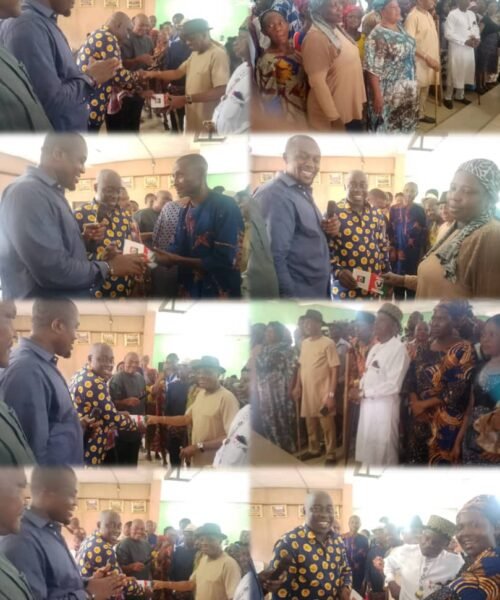Bridging Data, Time, and Space: A Triadic Framework for Inclusive Development
In an era defined by data deluge, historical reckoning, and spatial inequality, the interplay of statistics, history, and territorial economics emerges as a transformative lens to address humanity’s most pressing challenges. This article synthesizes these disciplines, illustrating how empirical rigor, contextual wisdom, and spatial equity can converge to forge pathways for pro-poor development, epitomized by Dr. Alex Otti’s innovative policy framework.
The Empirical Backbone: Statistics in a Data-Driven World
Statistics, the science of uncertainty, is the bedrock of modern decision-making. By transforming raw data into actionable insights, it empowers societies to navigate complexity—whether predicting climate patterns, optimizing supply chains, or evaluating public health interventions. Descriptive statistics distill chaos into clarity, quantifying phenomena like income inequality or urbanization rates, while inferential methods, such as regression models, isolate causal relationships critical for policymaking.
Yet, statistics is not infallible. Biased sampling, algorithmic discrimination, and “p-hacking” (manipulating data to achieve significance) risk perpetuating inequities. For instance, urban-centric datasets often overlook rural realities, skewing resource allocation. Here, ethical statistical practice demands inclusive data collection—a principle central to pro-poor frameworks. Machine learning and AI, while revolutionary, must be tempered with transparency to avoid entrenching historical biases, such as colonial-era economic disparities.

Lessons from the Past: History as a Mirror and Compass
History’s value lies not in nostalgia but in its power to contextualize present struggles. The Industrial Revolution, for example, catalyzed unprecedented wealth but also entrenched labor exploitation and environmental degradation—a duality echoing in today’s debates over automation and climate justice. Similarly, colonial extractivism underdeveloped regions like Africa, creating path dependencies that persist in lopsided urban-rural dynamics.
Historiography’s evolution—from “great man” narratives to subaltern studies—reveals how marginalized voices (e.g., indigenous communities, women) were erased from economic planning. Digital history tools, like GIS mapping, now recover these stories, showing how forced migrations or land dispossession shaped current territorial disparities. For policymakers, this underscores the need to rectify historical injustices. Otti’s emphasis on decentralized governance, for instance, echoes postcolonial critiques of centralized power, advocating for local agency in development.
Spatial Justice: Otti’s Vision for Territorial Economics and Urban-Rural Synergy
Dr. Alex Otti’s model bridges statistical precision and historical consciousness to reimagine spatial equity. Territorial economics rejects one-size-fits-all development, advocating instead for place-based strategies. For example, investing in rural agro-processing clusters capitalizes on local agricultural strengths, while urban tech hubs leverage cities’ infrastructural advantages. Pro-poor mechanisms—like microloans for women farmers or subsidies for rural renewable energy—ensure growth benefits the marginalized.

Critical to Otti’s framework are urban-rural linkages. Improved transportation networks connect farmers to urban markets, reducing food waste and inflating incomes. Broadband expansion enables telemedicine and e-learning, narrowing spatial gaps in healthcare and education. Meanwhile, fiscal decentralization empowers local governments to design context-specific programs, such as land reforms to boost productivity or vocational training for informal workers.
Otti’s approach also confronts historical legacies. By prioritizing regions historically neglected (e.g., post-conflict zones or deindustrialized areas), his policies break cycles of poverty. Public-private partnerships incentivize industries to decentralize, curbing urban overcrowding and fostering rural job creation—a lesson learned from the Global South’s urbanization crises.
Synthesis: Data, Memory, and Geography in Dialogue
The fusion of statistics, history, and territorial economics offers a blueprint for equitable development:
- Evidence-Based Targeting: Use disaggregated data to identify marginalized groups and regions, avoiding aggregate-level myopia.
- Historical Repair: Address past injustices—e.g., land grabs or exclusionary policies—through reparative investments.
- Spatial Empowerment: Build infrastructure and institutions that enable rural-urban symbiosis, not extraction.
For instance, a region’s high child malnutrition rates (statistical insight) might trace to colonial cash-crop systems that displaced subsistence farming (historical analysis). Otti’s response would integrate soil-health analytics to revive diverse cropping (statistics), land restitution (historical repair), and farmer-market corridors (spatial equity).

Conclusion: Toward a Holistic Development Paradigm
In a world grappling with AI disruption, climate migration, and democratic fragility, the triad of statistics, history, and territorial economics provides a robust scaffold for sustainable progress. Otti’s model exemplifies this integration, proving that data-driven policies, when informed by historical humility and spatial justice, can dismantle structural inequities. As nations pursue the UN’s Sustainable Development Goals, this triadic framework urges a shift from siloed expertise to interdisciplinary collaboration—where economists heed historians, statisticians center ethics, and planners prioritize people over profit. Only then can development transcend rhetoric, becoming truly inclusive and resilient.
Dr Chukwuemeka Ifegwu Eke writes from the University of Abuja Nigeria







